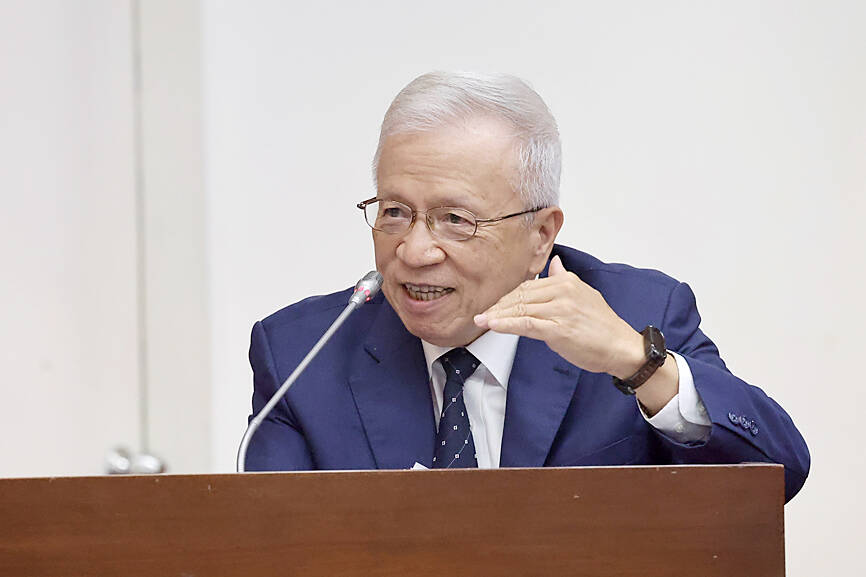BUST FEARS:
While a KMT legislator asked if an AI bubble could affect Taiwan, the DGBAS minister said the sector appears on track to continue growing
By Lisa Wang / Staff reporter
The local property market has cooled down moderately following a series of credit control measures designed to contain speculation, the central bank said yesterday, while remaining tight-lipped about potential rule relaxations.
Lawmakers in a meeting of the legislature’s Finance Committee voiced concerns to central bank officials that the credit control measures have adversely affected the government’s tax income and small and medium-sized property developers, with limited positive effects.
Housing prices have been climbing since 2016, even when the central bank imposed its first set of control measures in 2020, Chinese Nationalist Party (KMT) Legislator Lo Ting-wei (羅廷瑋) said.

Photo: CNA
“Since the second half of last year, the property speculation situation has improved significantly,” central bank Deputy Governor Yen Tzung-ta (嚴宗大) said.
The central bank has no intention to crack down on the real-estate market, butit aims to lower the potential for speculation, which affects the nation’s financial stability, Yen said.
KMT Legislator Lin Tzu-ming (林思銘) urged the central bank to revisit its credit control policy, saying that most young people are still struggling to buy a home.
The central bank has eased credit controls slightly during the last monetary meeting in September, allowing second homebuyers to apply for new mortgages after selling their house within 18 months, longer than the previous 12-month requirement, Yen said.
In response to KMT Legislator Lai Shyh-bao’s (賴士葆) question about the possibility of further easing credit control measures, Yen said the central bank would adjust its policy at quarterly meetings based on internal reviews.
Lai said he feared that the central bank’s credit controls led to a significant reduction in tax revenue from house and land transactions.
Tax revenue fell 32.6 percent year-on-year last month to NT$4.35 billion (US$139.96 million), Ministry of Finance data showed.
During the first 10 months of this year, income from the property transaction tax contracted 2.9 percent annually to NT$83.25 billion, it showed.
Separately, Directorate-General of Budget, Accounting and Statistics (DBGAS) Minister Chen Shu-tzu (陳淑姿) told the legislature that Taiwan’s economic growth this year would exceed 5.5 percent, and could approach 6 percent, as the country benefits from its position at the forefront of the global artificial intelligence (AI) boom.
KMT Legislator Lin Te-fu (林德福) asked the minister if the economy faced risks from a potential AI bubble.
AI development, which is being led by tech giants, is producing stable profits, Chen said.
The growing number of practical applications for AI, as well as the sustained demand for computing power, indicates that it would continue to be profitable, justifying an optimistic outlook, she said, adding that Taiwan has a leading role in the AI sector.
Additional reporting by CNA
